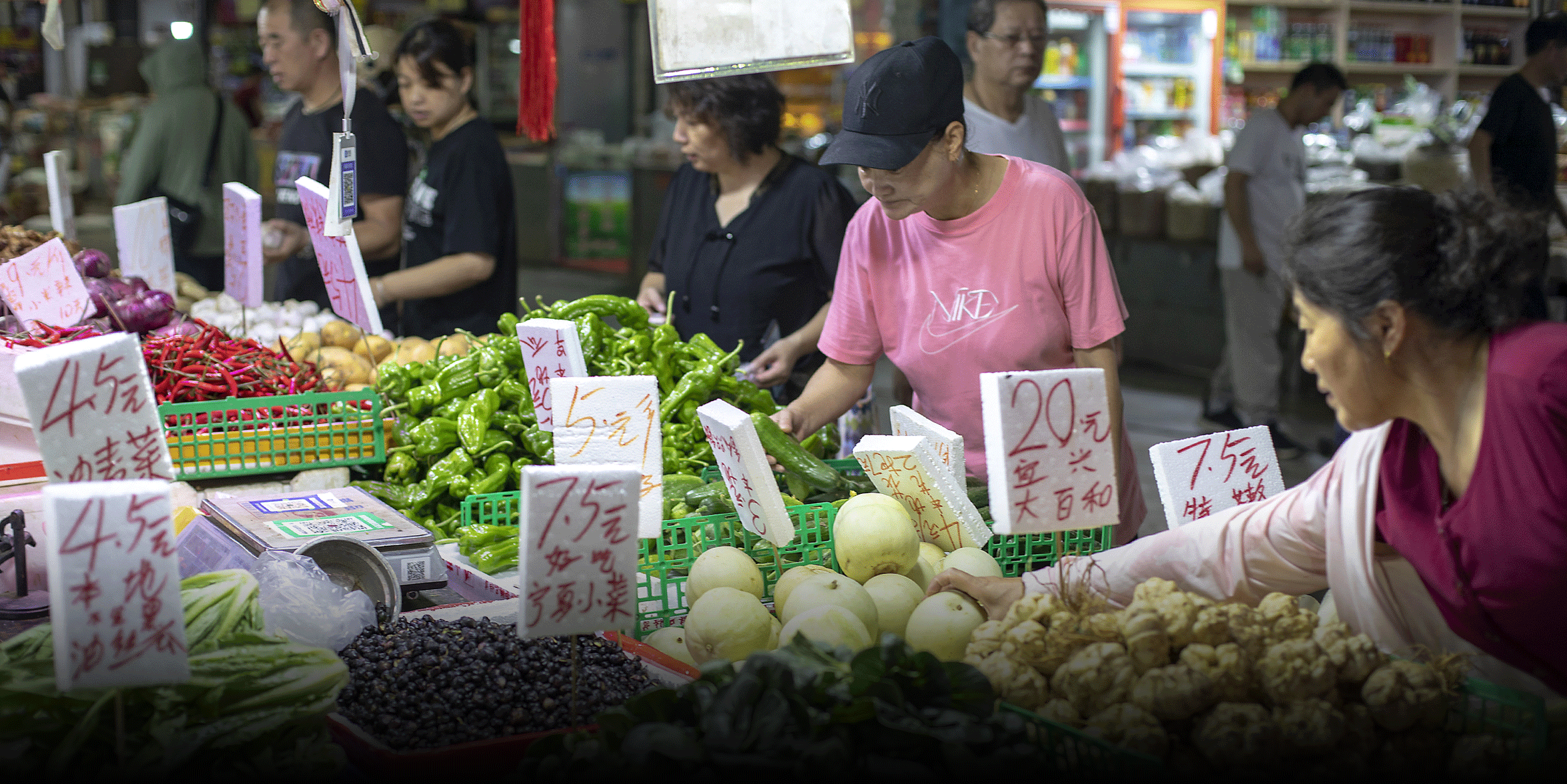
Extreme Weather Sends Food Prices Soaring in China
Vegetable prices have soared to their highest level in nearly a decade in China, after a summer of extreme weather that has battered the country’s farming heartlands.
According to China’s Ministry of Agriculture and Rural Affairs, the country’s average daily vegetable price rose over 40% between June 16 and Aug. 15, from 4.27 yuan ($0.60) per kilogram to 6.01 yuan ($0.84).
In some areas, prices rose even more steeply, with buyers in the southwestern Sichuan province forced to pay more than 50% extra for mustard greens, cucumbers, eggplants, and several other types of vegetables, local media reported.
Vegetable prices often increase in the summer in China, as high temperatures make it harder for farmers to grow crops. But the fluctuations have been more extreme this year due to a string of severe natural disasters.
Several regions have experienced historic levels of rainfall this summer, with flash floods affecting key agricultural regions from eastern China’s Anhui province to Sichuan province in the southwest.
“The recent extreme weather conditions, including repeated heat waves and floods, have led to reduced vegetable production in some regions this summer,” Hu Bingchuan, a researcher at the Chinese Academy of Agricultural Sciences, told Sixth Tone.
Farmers in several areas told domestic media that the floods had devastated their crops. One grower in Anhui reported harvesting only 250 kg of cucumbers this summer, whereas their usual yield was 1,000 kg. They added that they’d doubled their prices per kilogram from 4 yuan to 8 yuan to mitigate their losses.
The extreme weather is also hampering agriculture in other ways, experts said. Landslides and other natural disasters have damaged roads, making it harder to bring in the harvest and transport crops to market. Vegetables in the markets also have shorter shelf lives due to the blistering temperatures.
Years of unpredictable weather, meanwhile, have led many farmers to give up growing vegetables entirely. Some are switching to growing hardier crops like potatoes or more profitable products such as fruit. Others are looking for jobs in other industries.
And some farmers are reluctant to work in the fields during the kind of severe heat witnessed in many parts of China this summer. “Most farmers nowadays are elderly,” Hu said. “If they go out to irrigate their plants and end up having to go to the hospital with heat stroke, it’s not worth the effort for them.”
According to Hu, prices are likely to peak over the following month before returning to a normal level after the National Day holiday in October. “The high temperatures have mostly passed and the flooding disasters are over,” he said.
“Many who suffered from earlier disasters, such as floods, might choose to plant more vegetables once their fields have drained due to the high prices,” Hu added. “These newly planted vegetables could be ready for market in around 30 days.”
For this reason, Hu believes that the government should wait for the market to adjust itself rather than intervening to stabilize prices.
“From the government’s perspective, intervening would involve costs far greater than the actual short-term benefits to the public,” he said. “If the government subsidizes cucumber production, prices could drop significantly next season, making the fiscal intervention ineffective and excessively costly.”
Offering short-term subsidies to low-income households might be a more effective approach if the government decides to take action, Hu added.
In the long term, the extreme weather is likely to accelerate the consolidation of China’s agriculture industry, as small-scale farmers are less able to ride out disasters than larger agribusinesses, industry insiders told domestic media.
“Compared with ordinary vegetable farmers, large companies have substantial financial resources, better risk management, and superior planting techniques, fertilizers, and pesticides,” Wang Zhengjun, a manager at an agribusiness based in Pengyang County, northwest China’s Ningxia Hui Autonomous Region, told Shanghai-based outlet The Paper.
For Hu, there is an urgent need for Chinese agriculture to increase investment in new agricultural technology to adapt to an increasingly inhospitable climate.
“Agricultural production must move toward large-scale, professional, and intelligent farming. This shift will reduce the need for heavy physical labor and repetitive tasks,” he said. “We need to study and improve our plants to enhance their adaptation to climate change. For example, developing varieties that are more resistant to high temperatures and droughts.”
(Header image: At a wet market in Shanghai, Aug. 19, 2024. VCG)










